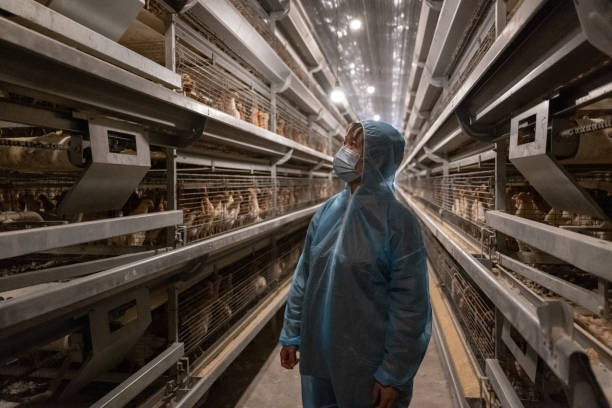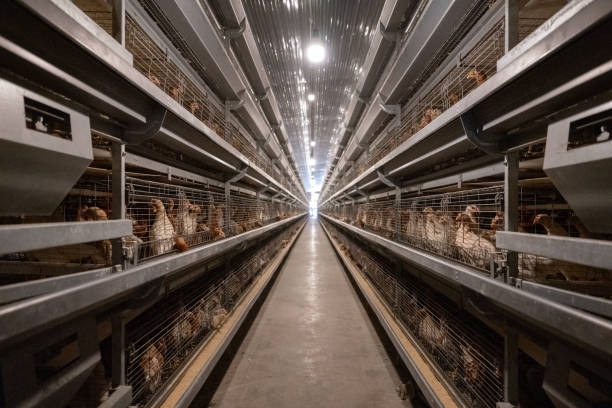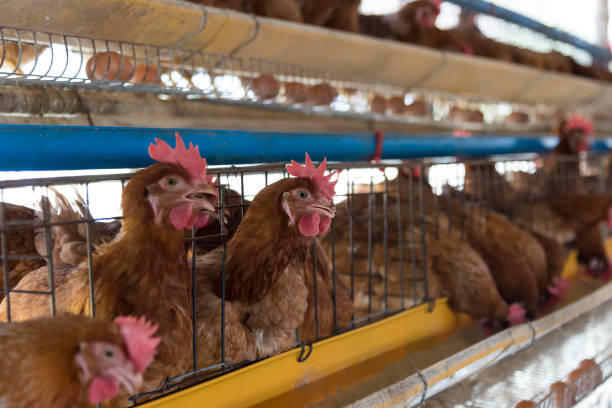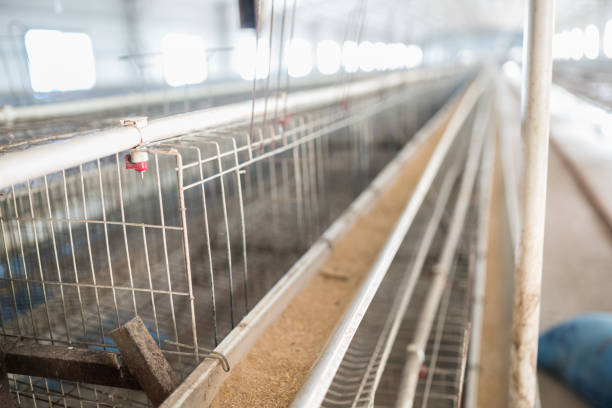
Pure Kienyeji Chicken Farming Solutions in Kenya
Pure Kienyeji Chicken Farming Solutions in Kenya
For many farmers in Kenya, raising pure Kienyeji chickens is more than just a farming activity—it’s a profitable venture rooted in tradition, resilience, and sustainability. These indigenous birds are highly valued for their flavorful meat, natural disease resistance, and ability to thrive on minimal inputs. However, while the demand for pure Kienyeji chicken continues to grow—from urban markets to specialty restaurants—the challenges of maintaining breed purity, optimizing productivity, and scaling operations remain significant. This is where modern, tailored farming solutions come into play.
At Livi Machinery, we’ve spent over a decade perfecting poultry farming systems that support both smallholder farmers and large-scale agribusinesses across Africa. With a deep understanding of local farming conditions and animal behavior, we design smart, durable, and efficient equipment that empowers Kenyan farmers to raise healthier, higher-yielding Kienyeji flocks—without sacrificing the very qualities that make them special.
Why Modern Equipment Is Essential for Pure Kienyeji Chicken Farming
Contrary to the common belief that indigenous chickens should be left entirely “free-range,” uncontrolled environments often lead to crossbreeding, predation, poor monitoring, and inconsistent growth rates. Many new entrants into the Kienyeji sector start with excellent intentions but struggle to produce uniform, high-quality chickens due to outdated or inadequate housing and management practices.
The truth is, traditional free-range methods can work—but they limit scalability and profitability. Without proper infrastructure, it’s nearly impossible to maintain genetic purity when neighboring farms have broilers or hybrid layers roaming freely. You might think you’re selling pure Kienyeji birds, only to discover your stock has been diluted by unwanted mating patterns.

This is where intelligent poultry systems from Livi make all the difference. Our custom-designed chicken cages, feeding trays, nipple drinkers, and climate-controlled shelters allow farmers to practice semi-intensive or intensive farming while preserving the natural behaviors of Kienyeji chickens. For example, our elevated wire-mesh pens keep birds safe from snakes and rodents while promoting hygiene by reducing contact with droppings. The result? Lower mortality rates, better feather cover, and stronger birds—all traits customers are willing to pay a premium for.
Additionally, our modular cage systems are built to fit any farm size. Whether you have space for 50 birds or 5,000, our equipment can scale with your business. Each unit includes ventilation panels and UV-resistant coatings to withstand Kenya’s strong sun and rainy seasons—key features for long-term durability and bird comfort.

Improving Growth and Egg Production While Keeping It Natural
One of the biggest misconceptions about Kienyeji chickens is that they cannot be improved through technology. Some believe that introducing any kind of controlled environment will dilute the “organic” nature of these birds. But with the right tools, you can boost performance naturally—without hormones, antibiotics, or artificial feeds.
Take temperature regulation, for instance. Chicks are especially vulnerable during the first few weeks of life. A drop in body temperature—even slightly—can stunt growth or cause death. In rural areas without electricity, keeping brooders warm at night was once a major challenge. Now, our solar-powered heating lamps and insulated chick brooder cages provide consistent warmth using renewable energy. Farmers report faster weight gain and stronger survival rates, meaning more chicks reach market age and lay eggs sooner.
Feeding is another area where innovation leads to real impact. Free scavenging means uneven nutrition: some birds eat too much grass, others consume harmful insects or plastic waste. With our automated feeder system, you control exactly what each bird eats—and how much. We recommend balanced feed supplemented with local ingredients like termites, kitchen scraps, or moringa leaves. Our feeders reduce wastage by up to 30%, saving money in the long run while ensuring every chicken gets equal access to food.
And when it comes to egg production, our nesting boxes encourage hens to lay in designated areas—making collection easier and eggs cleaner. The average Kienyeji hen lays around 80–120 eggs per year under good conditions, but inconsistent nesting habits can lead to broken, dirty, or lost eggs. By creating private, secure spaces with soft bedding, we help increase laying frequency and improve egg quality—two factors directly linked to higher profits.
Best of all, none of this interferes with the bird’s natural traits. They still scratch, flap their wings, and develop strong muscles thanks to spacious runs within the enclosures. We build flexibility into every system so that farmers can strike the perfect balance between productivity and authenticity.
From Setup to Success: Complete Support Every Step of the Way
Starting a successful Kienyeji chicken farm doesn’t end with buying equipment. You need guidance on site selection, breed sourcing, biosecurity, vaccination schedules, and even marketing strategies. That’s why Livi offers full-service support—from initial consultation to delivery and installation, plus ongoing training and troubleshooting.

Our team works closely with Kenyan farmers to assess their land, climate, and goals before recommending a tailored setup. Need a low-cost entry-level system for backyard farming? We’ve got options. Planning a commercial project for export to Dubai or Europe? We’ll engineer something robust and traceable, complete with record-keeping tools for egg tracking and batch management.
We also partner with local agricultural officers and vet clinics to ensure your operation meets health standards. Regular maintenance checks, spare parts supply, and video tutorials help minimize downtime. And because our products are made from galvanized steel, they resist rust and last over 10 years—even in humid coastal regions like Mombasa or Lake Victoria zones.
Over the past five years, we’ve helped over 700 farms across Kenya upgrade their Kienyeji operations—from Kiambu to Kitale, Makueni to Nakuru. Success stories include farmers doubling their monthly income within 9 months, or women’s cooperatives launching organic egg brands sold in Nairobi supermarkets.
What makes us different isn’t just the hardware—we truly care about your success. We don’t sell cages; we deliver results.
If you’re ready to transform your Kienyeji chicken farming dream into a sustainable reality, let’s talk. Share your farm size, target output, and current challenges with us, and we’ll send you a no-obligation plan—including product recommendations, pricing, and setup timeline. Email your details to [email protected] or WhatsApp us at +86 132XXXXXXX. Let’s build something great—together.
